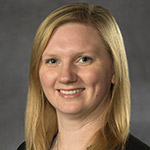Cultivating Current Talent Provides Pathway to Leadership Positions
4/1/2020
Administrators spend significant time and energy finding qualified employees to staff their facilities. But they needn’t look too far for applicants to fill leadership positions themselves. The candidate pool could be right under their noses.

Leaders need to think about cultivating and advancing the talent that already exists within their community, says Jennifer Pryor, MA, MS, LALFA, co-director for the NAB-accredited Assisted Living Administration specialty area in Virginia Commonwealth University’s (VCU's) master’s degree in gerontology program.
“This requires leaders to really get to know their staff, to give them opportunities to try on different leadership roles, and to encourage the continued educational advancement of those who are eager and willing to take on these new opportunities,” she says.
Qualities to look for in strong administrators include humility, compassion, moral courage, and integrity, she adds.
There are certain steps leaders can take to nurture the next generation of administrators. Providing tuition assistance is one significant way to help, Pryor says. Without such support and encouragement, “we will continue to miss out on really great opportunities for new talent to rise to the top.”
Scrutinize Training Programs Carefully
Any individual looking for leadership advancement will find many different types of training, certifications, and credentials available. Pryor cautions that not all programs are created equal.
“Unfortunately, there are companies out there that are simply looking to make money,” she says.
“Therefore, it’s important to carefully vet the programs prior to signing up for them.” Characteristics to examine include:
- If the sponsoring organization is a nationally recognized entity working within their expertise;
- The depth of content that is covered, and requirements for credentialing; and
- Whether the program is approved, accredited, or promoted by professional organizations.
“Further developing skills and competencies is essential to keeping up with changing trends, but we want to make sure that we are going through legitimate programs to do so,” Pryor says. “Otherwise, we may not be exploring to the depths that we need to in order to grow, or we may be receiving misinformation.”
In her own work at VCU, Pryor observes there is a hunger for knowledge among administrators, staff, and others working in the long term care industry. She also sees the need for higher quality and more frequent education and training at all levels. The Department of Gerontology at VCU tailors its training and continuing education programs to meet the needs of each community. Pryor notes that VCU has seen great demand for its programs, along with strong attendance at its regional conferences, webinars, and residential care/assisted living exam prep course.
“One thing that I believe to be true is that everyone wants to do their best, and they also want to be able to do better,” Pryor says. “There is always going to be high demand for high-quality education and training programs.”